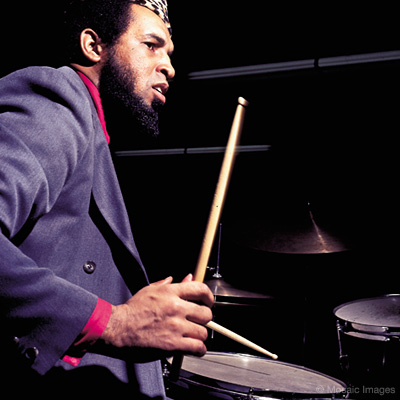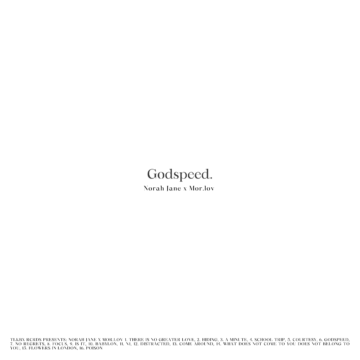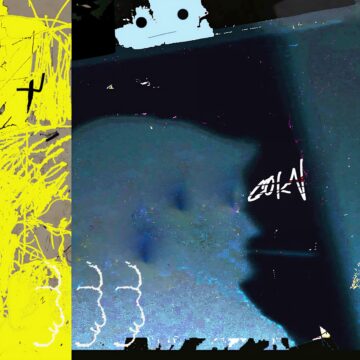Drummer Idris Muhammad was truly a musical giant. If many other legends have excelled or innovated, it usually involved a particular genre of music. Not many can be found to have explored so many styles of Jazz let alone Soul, Funk, R-n-B, Rock and various New-Orleans styles to their repertoire.
Many great drummers have been at the forefront of their ensembles and although Muhammad’s own group discography is impressive with a dozen releases from 1971 onwards, it’s his work as a sideman that truly helps propel him into musical royalty. With Idris, it was more than names, it was also breadth. He started as early as the 50s recording with Fats Domino and touring with Sam Cooke and went on to play with experimental jazz greats Pharoah Sanders (1969 to 1987) and Ahmad Jahmal (1995-2008). Basically the man featured on 136 albums recorded in Rudy Van Gelder’s legendary New Jersey recording studio alone. Finally this interview in a Youssou N’Dour documentary showcases his often cited infectious personality and is a testament to his international stature.
What I personally like the most about his playing is that not only was it stellar, but it seemed to always be featured on the most creative and fascinating projects from otherwise more traditional musicians. He added a doseof funkiness to Alive! by Blue Note guitarist Grant Green and grooved hard on Nat Adderley’s genre bending Calling Out Loud album. Whether by Andrew Hill or Rueben Wilson it seems Idris was trusted as understanding the voyage the musicians wanted to embark on, but also helped them reach their destination by propelling them to a higher ground off the strengths of his drum-kit.
His label moves are also telling. His time at Blue Note led to him participating in many classic records, but his rawest ones are with saxophonist Lou Donaldson. After recording on the more open minded Cadet label with Lou, they paved the way for a string of Jazz-Funk releases on Blue Note that have provided samples and Idris breaks for an entire decade of Hip-Hop production. He recorded with Donaldson until 1970, before going solo and releasing his literally revolutionary album Black Rhythm Revolution on Prestige. But I personally cherish his time on CTI/Kudu the most. The quality of arrangements, artistic freedom and funkier approach of the label seemed tailor-made for Muhamad to shine and did he ever! Bob James’ Nautilus pretty much sums up all of my descriptions so far in one incredible piece of music.
For me the Idris Muhamad experience is encapsulated in two records and ironically Power of Soul was one of my first finds and I just found Turn This Mutha Out a month ago. It also helps define the fine line between Soul-Jazz and Jazz-Funk and you can basically do so by simply looking at Muhammad’s face on both covers. Power of Soul is a lush contemplative effort where the soul-jazz drumming infuses energy into the subtle Fender Rhodes work as heard in the heavily sampled Loran’s Dance and my personal favorite Peace of Mind. On the other hand Idris “turns it out” on his jazz-funk opus that is edging closer to disco sounds to come, yet there is deep meaning to the rambunctious songs as the unfortunately aptly titled “Could Heaven Ever Be Like This” indicates.
Indeed this giant passed away recently and his contribution to music is the backbone to many crate diggers’ collections. One of my drummer friends recently told me that hearing Muhammad’s drumming on Melvin Sparks “Who’s Gonna Take The Weight” changed the whole way he saw drumming when he was 15. All we can say now is thank you! The legacy lives on.






No Comment